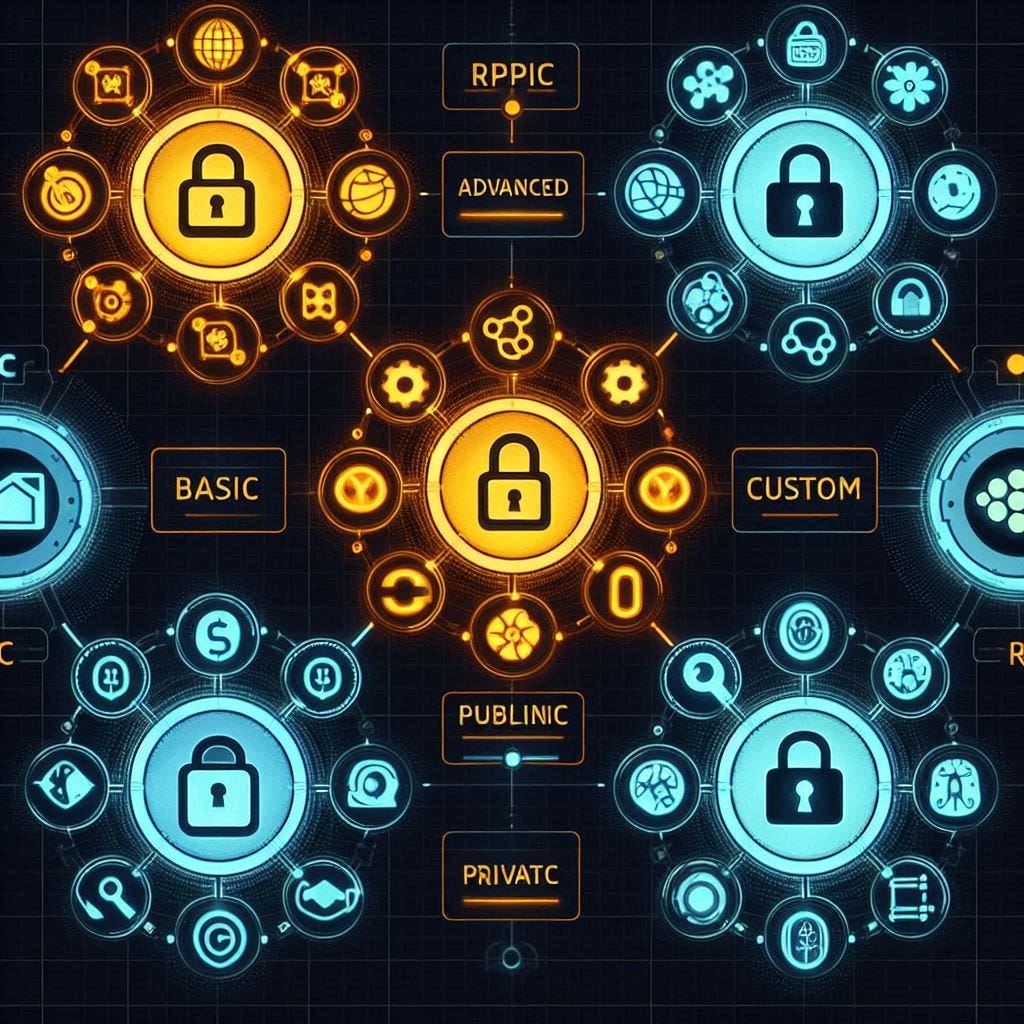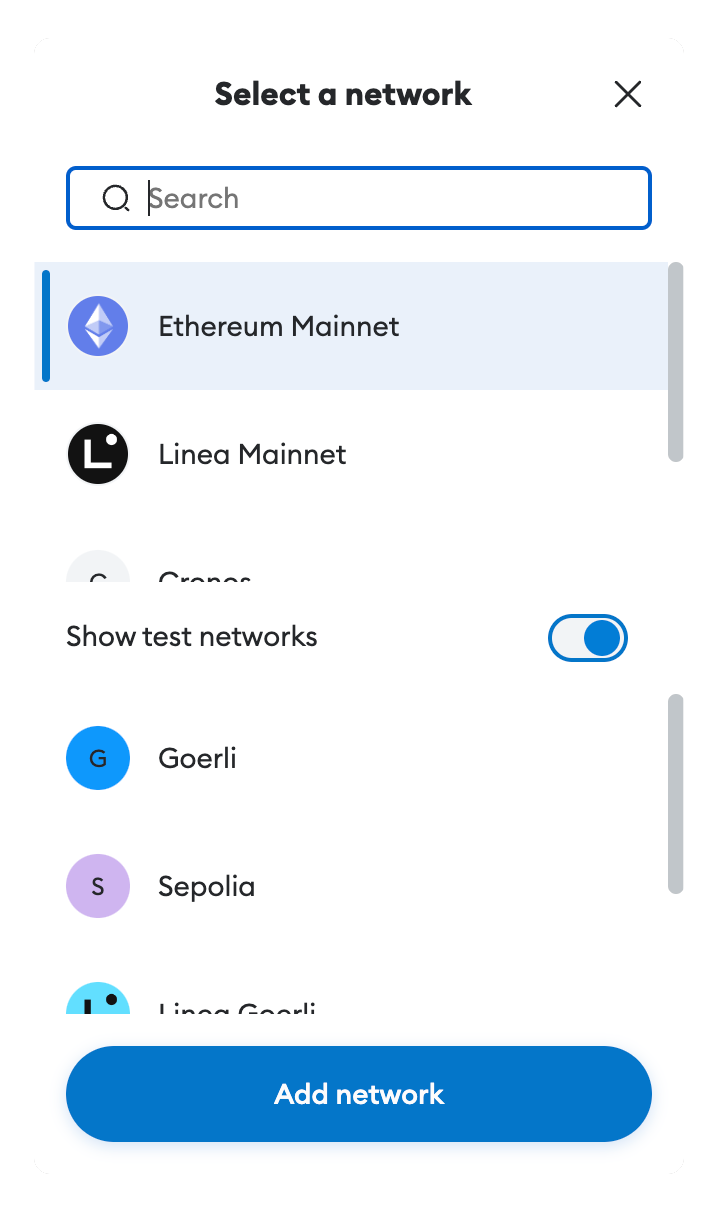Build On Cronos Academy: Understanding RPCs and Their Role in Blockchain Communication
Simplifying Remote Procedure Calls (RPCs) and exploring their role on Cronos and Web3.
Remote Procedure Calls (RPCs) form the backbone of blockchain communication. While users interact with decentralized applications (dApps) through intuitive interfaces, behind the scenes, RPCs enable the essential connection between dApps and blockchains. Without them, web3 ecosystems would lack the critical link that allows transactions, data retrieval, and contract interactions to function seamlessly.
In this article, we'll break down the concept of RPCs, their importance in blockchain development, and how they enable the web3 ecosystem. We'll cover:
What are RPCs? An explanation of how they work in the context of blockchains.
The Role of RPCs. The role they play in facilitating blockchain communication.
Types of RPC Endpoints. Different use-cases require different needs for developers, users, and projects.
How to Choose the Right Cronos RPC Provider. The common knowledge for finding the right RPC for your needs.
By the end of this guide, you'll have a clear understanding of RPCs' role in the web3 space and why they are indispensable for building scalable and efficient blockchain solutions.
What Are Remote Procedure Calls (RPCs) and RPC Nodes?
ELI5: The Simple Explanation
Think of an RPC as a bridge between you and the blockchain. Imagine you’re ordering food delivery (a blockchain transaction). The RPC acts like the app that connects your order (your transaction request) to the restaurant (the blockchain). It helps ensure your order is received, processed, and delivered back to you—all without you needing to know how the backend works.
Deep Dive: How RPCs Work in Blockchain
In technical terms, an RPC is a communication protocol that allows one program (the client) to request a specific function from another program (the server) without needing to understand the server's inner workings.
In blockchain, RPCs enable dApps to interact with blockchain nodes seamlessly. RPC nodes serve as the gateways between dApps and the blockchain, allowing users to perform actions like checking balances, executing transactions, or querying smart contract data.
The Role of RPCs in the Cronos Ecosystem
ELI5: Why RPCs Matter for Cronos Users
Cronos is like a busy highway for blockchain transactions. RPCs are the toll booths ensuring everything flows smoothly. Whether you're using a wallet, staking CRO, or minting NFTs, RPCs make it all possible by handling the communication between you and the Cronos blockchain.
Deep Dive: Cronos-Specific Innovations with RPCs
Cronos uses RPCs to optimize network performance and ensure low-latency interactions. The network's success hinges on reliable RPC endpoints, which enable developers and users to:
Query on-chain data efficiently.
Interact with Cronos-based dApps.
Ensure seamless communication between Ethereum and Cronos as a Layer-2 solution.
By choosing the right RPC endpoint, Cronos users can improve transaction speeds and reliability, which is essential for scaling decentralized applications.
Types of RPC Endpoints
ELI5: Different Kinds of RPCs
Not all RPCs are created equal! Some are like freeways (Public RPCs), while others are like express toll lanes (Private RPCs). Here's a breakdown:
Public RPCs: Free and open to everyone. Great for everyday use but can be slow.
Private RPCs: Faster and more efficient but restricted to certain users or applications.
Custom RPCs: Tailored for specific needs, like NFT marketplaces or DeFi protocols.
Deep Dive: Advanced and Cronos-Specific RPCs
Cronos supports a wide variety of RPC endpoints, each catering to unique needs:
Advanced RPCs: For developers managing smart contracts or handling complex consensus mechanisms.
Custom RPCs: Enable bespoke features and enhance Cronos network interaction.
Geographically Optimized RPCs: Region-specific RPC endpoints to reduce latency for global users.
Use Cases of RPCs in the Cronos Ecosystem
ELI5: Everyday Applications of RPCs
Wallets: When you check your CRO balance or send tokens, RPCs make it happen.
dApps: From DeFi platforms to NFT marketplaces, RPCs are the glue that keeps everything connected.
NFTs: Buying or minting NFTs? RPCs power the smart contracts behind the scenes.
Deep Dive: Cronos-Specific Examples
MetaMask Integration: Cronos users can configure their MetaMask wallets with RPC URLs tailored for the Cronos network.
High-Performance dApps: Cronos-based projects use optimized RPC nodes to deliver lightning-fast DeFi and gaming experiences.
Cross-Chain Interactions: RPCs enable seamless communication between Cronos and other blockchains, like Ethereum, via Cronos Bridge.
How to Choose the Right Cronos RPC Provider
ELI5: Picking the Best RPC for You
Think of choosing an RPC like picking the best route on a GPS app. Factors like speed, reliability, and location matter.
Deep Dive: Factors to Consider
Latency: Lower latency means faster transaction processing.
Uptime: A reliable RPC provider minimizes disruptions.
Geographic Location: Choosing an RPC closer to you reduces delays.
Cronos users can reference the Build On Cronos RPC List.
Applying the Knowledge: How to Change RPC in Your Wallet
ELI5: Why Change Your Wallet's RPC?
Sometimes, the default RPC in your wallet may not be the best for your needs. Switching to a faster or more reliable RPC can improve transaction speeds, reduce errors, and ensure smoother interactions with Cronos-based dApps.
How to Change the RPC in MetaMask
Switching RPCs in a wallet like MetaMask is straightforward. Here’s a step-by-step guide tailored for Cronos users:
Open MetaMask
Launch MetaMask and unlock your wallet.
Navigate to Networks
Click on the circular profile icon in the top-right corner.
Select Settings > Networks from the dropdown menu.
Add a New Network
Click Add Network and input the following details for Cronos:
Cronos EVM
Network Name: Cronos EVM Mainnet (or any name you prefer).
New RPC URL: Input the RPC URL of your chosen provider. For example https://evm.cronos.org/
Chain ID:
25.Currency Symbol:
CRO.Block Explorer URL: https://cronoscan.com/
Cronos zkEVM
Network Name: Cronos zkEVM Mainnet (or any name you prefer).
New RPC URL: Input the RPC URL of your chosen provider. For example https://mainnet.zkevm.cronos.org/
Chain ID:
388.Currency Symbol: zkCRO.
Block Explorer URL: https://explorer.zkevm.cronos.org/
Save and Switch
Save the changes.
Select the new network in the dropdown menu to start using the updated RPC.
Deep Dive: Optimizing Your Wallet with Cronos RPCs
Better Latency: Choosing a geographically closer RPC can significantly improve transaction speeds.
Increased Reliability: Some RPC providers offer higher uptime, reducing the likelihood of network issues.
Specialized Features: Custom RPCs can unlock additional functionalities for advanced Cronos users.
Tips for Cronos Users
Reference the Build On Cronos EVM RPC List and Cronos zkEVM RPC List to find a provider tailored to your location and needs. Or you can use ChainList.
Test different RPCs to determine the best fit for your wallet and dApp interactions.
If you encounter issues, switch back to the default RPC or try another provider from the list.
By customizing your wallet’s RPC, you’ll enjoy faster, more reliable access to the Cronos ecosystem—empowering you to maximize your Web3 experience.
Why RPCs Are Vital for Cronos
RPCs aren’t just technical jargon; they’re the lifeblood of Cronos’ scalability and efficiency. They ensure dApps, wallets, and smart contracts communicate seamlessly, empowering developers and users to thrive in the Web3 ecosystem.
At Build On Cronos Academy, we aim to simplify these complex concepts so everyone—from developers to casual users—can confidently interact with Cronos.
Conclusion
RPCs are essential for blockchain communication and innovation, especially in a high-performance ecosystem. Whether you're a developer building the next big dApp or a user exploring DeFi, understanding RPCs is your first step toward unlocking the full potential of blockchain technology.
Ready to dive deeper? Explore more at Build On Cronos Academy!






